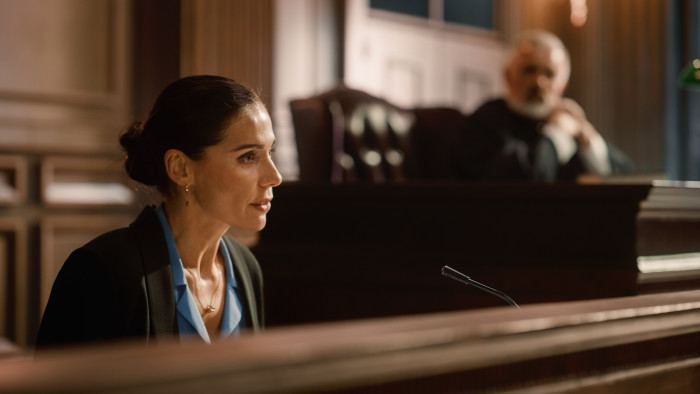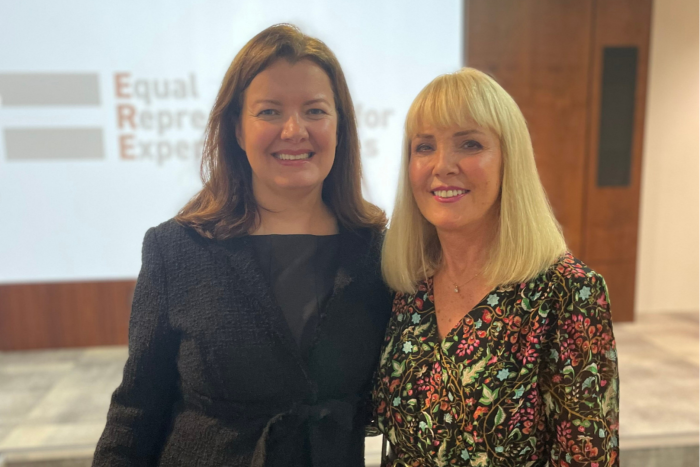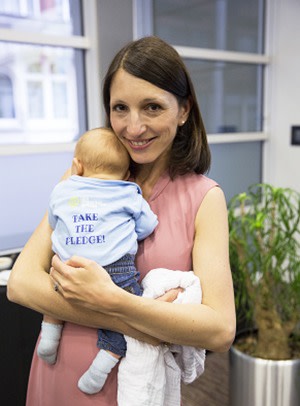Expert witnesses: where are all the women?

Roula Khalaf, Editor of the FT, selects her favourite stories in this weekly newsletter.
Expert witnesses are used in complex legal disputes to help explain a technical topic to a judge or arbitrator — and can hail from fields as varied as medicine, law, and accountancy.
A chemist, for example, may be called to testify in a complex drug patent dispute; or an accountancy expert to testify about potential losses suffered by a company after a fraud has been discovered. In each case, the expert witness’s overriding duty is to the court, and they must provide truthful, impartial and independent opinions.
But a disproportionately small number of these experts are female — which has led to the launch of an initiative to increase the number of women acting as expert witnesses in court cases and arbitrations.
The Equal Representation for Expert Witnesses campaign aims to encourage more women to put themselves forward, and more parties to appoint them, as well as supporting their mentoring. So far, 496 signatories, including more than 70 organisations such as law firms, have signed up to the cause.
“We felt we had to do something about this, as the proportion of appointed expert witnesses [who] are women is really shocking,” says Kathryn Britten, a chartered accountant and managing director at global consulting firm AlixPartners. She began the campaign with Isabel Santos Kunsman, a US-based colleague at the firm.

Britten is a senior forensic accountant who has acted as an expert witness in commercial disputes for 30 years. She has provided opinions on matters such as accounting fraud and auditor negligence in several high-profile cases.
“This is really about making that pool of expert witnesses that are available as wide and as broad as possible to ensure that the right expert is available to do the job for a particular field,” she says.
There are few data sets on the proportion of women acting as expert witnesses. But a 2020 study by professional services firm PwC and Queen Mary University showed that, between 2014 and 2018, just 11 per cent of the 180 awards made in arbitral proceedings administered by the International Chamber of Commerce in Paris and New York used female expert witnesses.
Directories also show a paucity of female experts. Last year, in the Who’s Who Legal expert witnesses directory, just 16 per cent of the experts listed were female. Similarly, the membership list of The Expert Witness Institute is only 18 per cent female. Just 12 per cent of its finance experts are women, and just 8 per cent in its medical category (other than nursing). In construction, just 4 per cent of the experts listed are female.
More stories from this report
Female-led social enterprise tackles dysfunctional childcare system
Corporate abortion policies further complicate choices for female staff
A push for greater representation in the climate debate
How did your early work experiences shape your career?
Clare Smyth: ‘Pandemic teaches you how adaptable you are’
The new campaign complements an existing push to improve the underrepresentation of female arbitrators, which has seen some success.
The Equal Representation in Arbitration campaign was launched in 2015 in recognition of the lack of women on international tribunals. Supporters sign a pledge to seek to increase, on an equal opportunity basis, the number of women appointed to the role.
Sylvia Noury KC, co-chair of the ERA and an arbitrator at law firm Freshfields, helped set up the call to action for the arbitration community.
The pledge has 4,129 individuals and 983 organisations in 143 countries as signatories.
“In the past, it has been clear that qualified women haven’t had the same opportunities as qualified men to sit as arbitrators,” Noury says.
“Things are changing — particularly at the more junior end of the spectrum,” she adds. “[Clients] are now increasingly more willing to appoint a woman arbitrator, with the pool of qualified women becoming more visible.”

Clients will even reject a list of potential arbitrators if it does not contain a fair representation of women, often quoting their obligations under the pledge, Noury notes.
According to the latest gender diversity report, published in September by the cross-institutional task force on gender diversity at the International Council for Commercial Arbitration, the proportion of women appointed as arbitrators has nearly doubled in the five years to 2021, from 12.6 per cent in 2015 to 26.1 per cent. More than a third of all appointments by arbitral institutions are now women, increasing from 24.9 per cent in 2015 to 37.9 per cent in 2021.
There are hopes that similar strides can be made in the field of expert witnesses.
Britten points out that many of those who become expert witnesses can use the experience to develop their careers, or even make it their main job.
“It has gone from something that people did as an extra to something that people are doing as a full-time job,” says Britten. “One of the benefits of doing it is it’s a fantastic career, every day is different, and you are continually challenged intellectually and personally.
Women at the Top Americas Summit
Join leaders from Qualcomm Incorporated, PepsiCo, Twitter and more at our Women at the Top Americas Summit. Taking place on November 14 at the Dream Downtown, New York, as well as online, our speakers will discuss how purposeful action from leaders can drive real change. Claim our limited 25% discount offer on our VIP in-person summit using promo code SPECIALREPORT22. Register for your in-person or digital pass today.
Comments